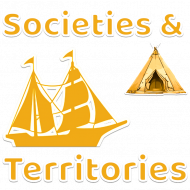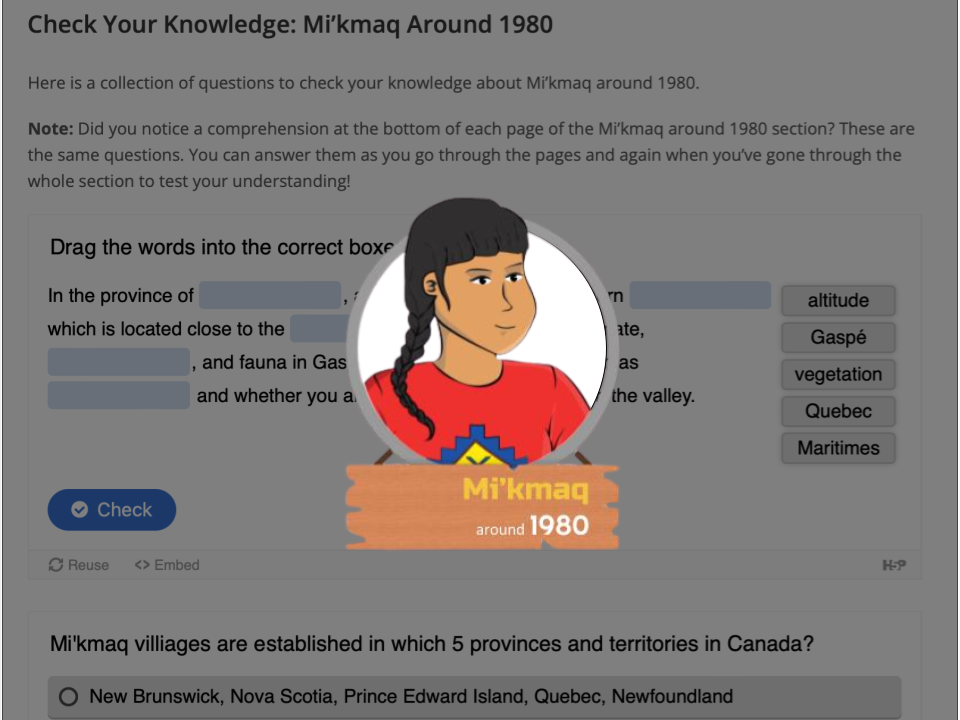Here is a collection of questions to check your knowledge about Mi’kmaq around 1980. Note: Did you notice a comprehension […]
Read MoreMi’kmaq around 1980
From mountains to sea, the Mi’kmaq lived and still live in the areas around present-day New Brunswick and eastern Quebec. […]
Read More

